Volvo EX30 VS Ford Explorer EV
In the rapidly evolving electric SUV market, the Ford Explorer EV stands out with its roomy interior and robust performance, making it a strong contender for families on the go. In contrast, the Volvo EX30 emphasizes safety and sustainability, combining cutting-edge technology with a compact design that appeals to urban drivers. Both models showcase the future of electric mobility, but each caters to distinct lifestyles and preferences.
Volvo EX30
The Volvo EX30 represents a bold step forward for the brand, combining advanced technology with sustainable design principles. Its sleek and compact exterior belies a spacious interior that offers a premium driving experience. With a focus on safety and innovation, this model reflects Volvo's commitment to shaping the future of urban mobility.
detailsFord Explorer EV
The Ford Explorer EV marks a significant step forward in the brand's journey towards electrification, offering an impressive blend of performance and sustainability. This modern SUV features a sleek design complemented by advanced technology that enhances the driving experience. With a focus on comfort and innovation, the Explorer EV aims to redefine family travel for the electric age.
detailsAn In-Depth Comparison: Ford Explorer EV vs. Volvo EX30
The automotive landscape is rapidly evolving, particularly in the realm of electric vehicles (EVs). This evolution has ushered in a wave of new models eager to meet diverse consumer demands. Among the standout contenders are the Ford Explorer EV and the Volvo EX30. Both SUVs blend innovation and performance, but they come from distinct philosophies and heritage. This article takes a closer look at their technical specifications and innovative features to determine which vehicle reigns supreme in this electric age.
Design and Dimensions
The Ford Explorer EV measures 4468 mm in length, 1871 mm in width, and stands at a height of 1630-1639 mm. This robust size gives it a commanding road presence and ample space for occupants and cargo alike. With a trunk capacity of 450 liters, it's well-suited for family trips and adventurous getaways.
On the other hand, the Volvo EX30 is slightly more compact at 4233 mm in length and 1837 mm in width, with a height of 1549 mm. While it may have less trunk space at 318 liters, the stylish design and Scandinavian aesthetics draw immediate appeal. Volvo emphasizes a minimalist interior that's both functional and luxurious, enhancing the overall driving experience.
Powertrains and Performance
Under the hood, the Ford Explorer EV offers a range of performance options with power outputs of 204 HP (150 kW) to 340 HP (250 kW). It features both rear-wheel drive and all-wheel drive, catering to varying driver preferences. The Explorer EV also boasts impressive acceleration, with a 0-100 km/h time of as little as 5.3 seconds for the more powerful variants. With a maximum torque of 679 Nm, it ensures powerful towing capabilities and responsive handling.
The Volvo EX30 presents even more exciting performance metrics, especially with its top-tier variant producing a robust 428 HP (315 kW) and 543 Nm of torque. With acceleration capabilities as quick as 3.6 seconds from 0-100 km/h, the EX30 positions itself as a performance hotspot in the compact SUV category. Both vehicles have a maximum speed of 180 km/h, showing they are designed for exhilarating driving.
Electric Efficiency and Range
When it comes to electric efficiency, the Ford Explorer EV shines with consumption rates ranging between 13.9 to 16.6 kWh/100 km. This impressive energy efficiency translates to a commendable electric range of up to 602 km, making it an excellent choice for long-distance journeys.
Conversely, the Volvo EX30 offers an electric range of up to 476 km, coupled with a consumption of 17 to 17.5 kWh/100 km. While this is slightly higher than the Explorer EV, the EX30's performance-oriented powertrains may justify the compromise for enthusiasts prioritizing spirited driving.
Battery and Charging Advancements
The Explorer EV comes with battery capacities ranging from 52 kWh to 79 kWh, delivering versatility in range and charging times. Ford's latest models focus on rapid charging technology, allowing drivers to recharge their vehicles quickly and efficiently.
In contrast, the EX30 features two battery options: a 49 kWh and a 65 kWh variant. Volvo’s advancements in battery technology ensure smart thermal management, providing not only efficiency but also a longer lifespan. Both manufacturers demonstrate a strong commitment to sustainable driving through enhanced battery technology.
Safety and Technology
Safety is paramount in both models. The Ford Explorer EV incorporates Ford's latest driver-assistance technologies, including adaptive cruise control and lane-keeping assist. Meanwhile, the Volvo EX30 prides itself on its robust safety features, underscored by Volvo's reputation for prioritizing driver and passenger safety through innovative systems such as City Safety and Pilot Assist.
Moreover, both SUVs integrate advanced infotainment systems with seamless connectivity options, enhancing the driving experience for tech-savvy consumers. Ford Sync and Volvo's Google-based infotainment system provide intuitive interfaces for easy access to navigation, music, and vehicle settings.
Conclusion: Which SUV Takes the Crown?
Choosing between the Ford Explorer EV and Volvo EX30 ultimately boils down to individual preferences and priorities. If you value a longer electric range, spacious interiors, and versatile performance options, the Ford Explorer EV may be your best bet. However, if you seek an agile, performance-oriented SUV that excels in safety features and elegant design, the Volvo EX30 deserves your attention.
In this electric era, both vehicles showcase the future of automotive innovation, ensuring that eco-friendly driving does not compromise on power or luxury. Whether it's the dependable utility of the Explorer EV or the sporty appeal of the EX30, the future of electric SUVs is bright.
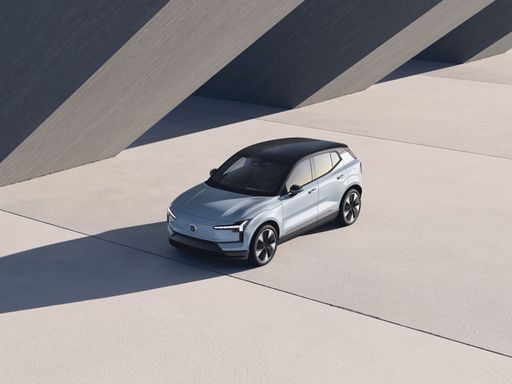 @ Volvo
@ Volvo
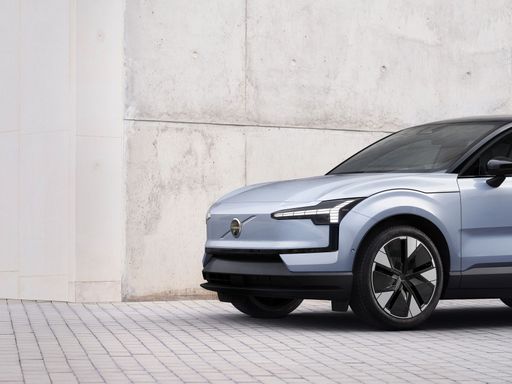 @ Volvo
@ Volvo
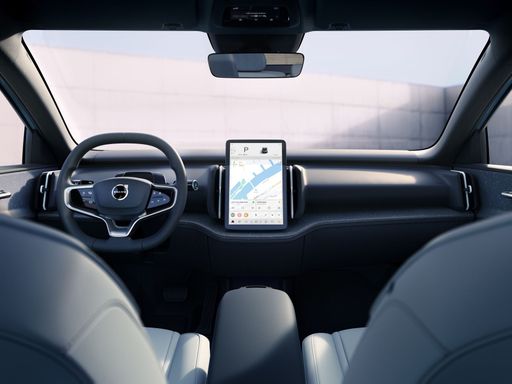 @ Volvo
@ Volvo
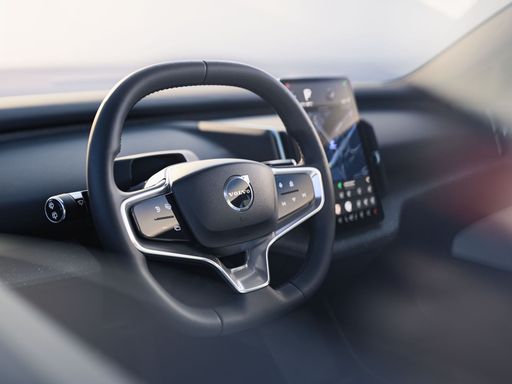 @ Volvo
@ Volvo
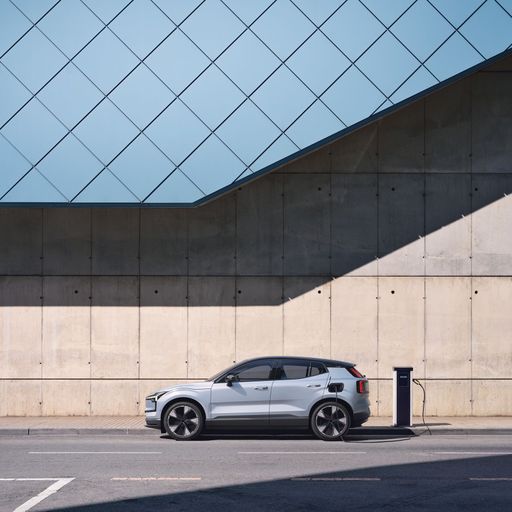 @ Volvo
@ Volvo
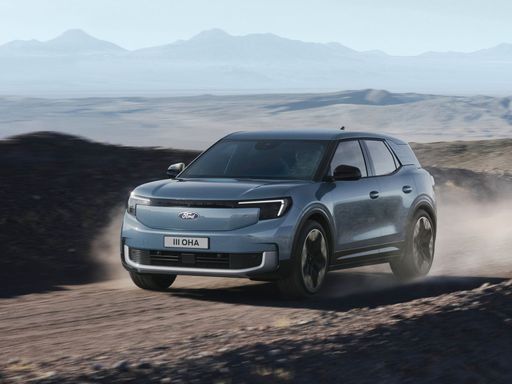 @ electricexplorer.fordpresskits.com
@ electricexplorer.fordpresskits.com
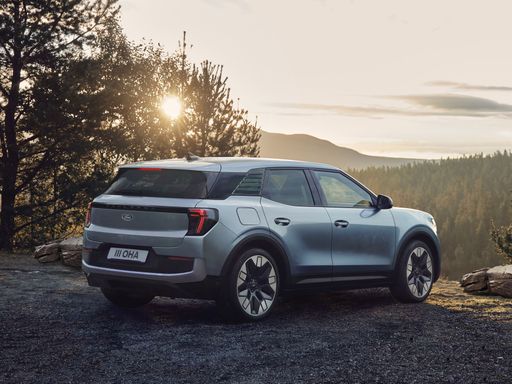 @ electricexplorer.fordpresskits.com
@ electricexplorer.fordpresskits.com
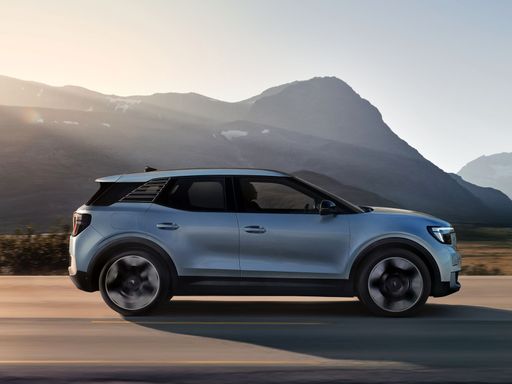 @ electricexplorer.fordpresskits.com
@ electricexplorer.fordpresskits.com

|

|
|
|
|
Costs and Consumption |
|
|---|---|
|
Price
about 34100 - 47400
£
|
Price
about 36400 - 49000
£
|
|
Consumption L/100km
-
|
Consumption L/100km
-
|
|
Consumption kWh/100km
17 - 17.5
kWh
|
Consumption kWh/100km
13.9 - 16.6
kWh
|
|
Electric Range
339 - 476
km
|
Electric Range
365 - 602
km
|
|
Battery Capacity
49 - 65
kWh
|
Battery Capacity
52 - 79
kWh
|
|
co2
0
g/km
|
co2
0
g/km
|
|
Fuel tank capacity
-
|
Fuel tank capacity
-
|
Dimensions and Body |
|
|
Body Type
SUV
|
Body Type
SUV
|
|
Seats
5
|
Seats
5
|
|
Doors
5
|
Doors
5
|
|
Curb weight
1840 - 1960
kg
|
Curb weight
2090 - 2167
kg
|
|
Trunk capacity
318
L
|
Trunk capacity
445 - 450
L
|
|
Length
4233
mm
|
Length
4468
mm
|
|
Width
1837
mm
|
Width
1871
mm
|
|
Height
1549
mm
|
Height
1630 - 1639
mm
|
|
Payload
370 - 390
kg
|
Payload
573 - 585
kg
|
Engine and Performance |
|
|
Engine Type
Electric
|
Engine Type
Electric
|
|
Transmission
Automatic
|
Transmission
Automatic
|
|
Transmission Detail
Reduction Gearbox
|
Transmission Detail
Reduction Gearbox
|
|
Drive Type
Rear-Wheel Drive, All-Wheel Drive
|
Drive Type
Rear-Wheel Drive, All-Wheel Drive
|
|
Power HP
272 - 428
HP
|
Power HP
170 - 340
HP
|
|
Acceleration 0-100km/h
3.6 - 5.7
s
|
Acceleration 0-100km/h
5.3 - 6.4
s
|
|
Max Speed
180
km/h
|
Max Speed
180
km/h
|
|
Torque
343 - 543
Nm
|
Torque
310 - 679
Nm
|
|
Number of Cylinders
-
|
Number of Cylinders
-
|
|
Power kW
200 - 315
kW
|
Power kW
125 - 250
kW
|
|
Engine capacity
-
|
Engine capacity
-
|
|
Top speed
180
km/h
|
Top speed
180
km/h
|
General |
|
|
Model Year
2024
|
Model Year
2024
|
|
CO2 Efficiency Class
A
|
CO2 Efficiency Class
A
|
|
Brand
Volvo
|
Brand
Ford
|
Volvo EX30
Unveiling the Volvo EX30
The automotive world is buzzing with excitement over the release of Volvo's latest electric vehicle: the Volvo EX30. This all-new addition to Volvo's lineup showcases the company's commitment to sustainability and innovation in the world of SUVs. Designed with precision and equipped with cutting-edge technology, the Volvo EX30 offers a compelling blend of performance, efficiency, and advanced features.
Technical Mastery Under the Hood
The Volvo EX30 comes with a range of powertrains to suit different driving preferences. Consumers can choose between the Single Motor and Twin Motor variants, with power outputs ranging from an impressive 272 PS to a robust 428 PS. The Twin Motor Performance version guarantees thrilling acceleration, reaching 0-100 km/h in just 3.6 seconds, making it one of the quickest electric SUVs available.
The EX30's efficiency is equally noteworthy, with an energy consumption rate starting at just 17 kWh/100km. Coupled with a battery capacity ranging from 49 to 65 kWh, this vehicle offers an impressive electric range spanning between 339 km and 476 km, depending on the chosen configuration.
Innovative and Sustainable Design
Volvo continues its quest for sustainability with the EX30, as evidenced by its zero CO2 emissions, contributing to a cleaner environment. The car's design prioritises both environmental consciousness and modern aesthetics, featuring recycled materials in its construction, without compromising on luxury or style.
Inside the cabin, the EX30 provides comfort and sophistication for up to five passengers, ensuring ample space and modern conveniences. The cabin's focus on ergonomics and understated luxury ensures that every journey is a pleasure.
Safety and Technology at Its Core
As with all Volvo vehicles, safety is paramount. The EX30 is no exception, equipped with an array of advanced safety features including state-of-the-art driver assistance systems to ensure maximum security on the road.
Furthermore, the vehicle's infotainment system is designed to provide seamless connectivity and entertainment options for the tech-savvy driver. The integration of intuitive controls and a responsive interface makes operating the vehicle's features an effortless experience.
Conclusion
The Volvo EX30 sets a new benchmark for electric SUVs, combining impeccable performance with sustainability and innovation. With a competitive price range of €39,790 to €55,290, this vehicle offers excellent value for those looking to embrace the future of motoring. Whether it's the cutting-edge technology, thrilling performance, or eco-conscious design, the Volvo EX30 is poised to become a leader in the electric vehicle market.
Ford Explorer EV
Unveiling the Future: The Ford Explorer EV
The all-new Ford Explorer EV makes a bold statement in the electric vehicle market with its amalgamation of cutting-edge technology, expansive features, and forward-thinking design. As Ford moves towards a more sustainable future, the Explorer EV stands out as a prime example of the brand's commitment to innovation and performance.
Power and Performance
Beneath its stylish exterior, the Ford Explorer EV boasts a powerful electric motor offering a range of power outputs from 170 PS to an impressive 340 PS. The vehicle provides either rear-wheel drive or an advanced all-wheel-drive system that ensures optimal traction and stability under diverse driving conditions. Thanks to its rapid acceleration, the Explorer EV races from 0 to 100 km/h in as little as 5.3 seconds, while maintaining a top speed of 180 km/h across its variants.
Battery Efficiency and Range
A major highlight of the Explorer EV is its varied battery options, which define its 'Standard Range' and 'Extended Range' models. With capacities ranging from 52 kWh to 79 kWh, the EV offers an impressive driving range of up to 602 km on a single charge. The electric consumption holds remarkable efficiency, varying between 13.9 kWh/100km and 16.6 kWh/100km, highlighting Ford’s innovation in energy management.
Interior Comfort and Technology
Inside, the Explorer EV exudes comfort with its high-quality materials and a spacious layout that accommodates up to five passengers. The vehicle is available in several trim levels, including the luxurious 'Premium' and 'Limited Edition', each outfitted with state-of-the-art technology. Drivers benefit from an intuitive infotainment system, comprehensive digital displays, and a variety of connectivity options that make every journey pleasurable and efficient.
Safety and Sustainability
Safety remains a priority for Ford, evident in the Explorer EV's suite of advanced safety features. The vehicle is equipped with cutting-edge driver-assistance technologies that work tirelessly to safeguard passengers with features such as adaptive cruise control and lane-keeping assist. Moreover, as a zero-emission vehicle, it proudly boasts a CO2 efficiency class rating of A, underpinning its eco-friendly credentials and Ford’s commitment to reducing the carbon footprint.
Pricing and Availability
The Ford Explorer EV is set to make waves with its competitive pricing. Starting between €42,500 and €57,200 depending on the trim and features, it offers exceptional value for those looking for a high-performing and sustainable SUV. The 2024 model is now available for order and promises to redefine expectations in the electric SUV segment.
Final Thoughts
The Ford Explorer EV embodies a harmonious blend of style, efficiency, and technological innovation. As a harbinger of Ford's electric future, it promises not just to meet but exceed the expectations of modern consumers by delivering an exceptional driving experience that is both versatile and responsible.
The prices and data displayed are estimates based on German list prices and may vary by country. This information is not legally binding.
